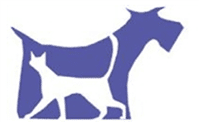By appointment only.After-hours service fees apply.

0296214161
Monday - Sunday 24/7
Address
118 Flushcombe Road, Blacktown, NSW 2148
By appointment only.After-hours service fees apply.

0296214161
Monday - Sunday 24/7
Address
118 Flushcombe Road, Blacktown, NSW 2148


Desexing or neutering your pet is a surgical procedure that prevents them from being able to reproduce. In male pets it is commonly referred to as ‘castration’, and in female pets as ‘spaying’.This is the most frequent surgery performed by our vets, and generally your pet is home by the evening of surgery.
The most common age to desex your pet is between 4 and 6 months, however they are never too old to be desexed.
There are many benefits to desexing your pet before 6 months. They include:
Vetblacktown serves as the best dog desexing hospital providing all the amenities with our experienced vets. We here take care of your pets so gently that you and your pet feel at most comfortable. You can schedule a consultation with our vets for desexing your dog accompanying along with all health checks.
Will desexing affect my pet’s personality?
Your pet will retain their pre-operation personality, possibly with the added bonus of being calmer and less aggressive.
Should my female have one litter first?
No – it is actually better for her not to have any litters before being spayed.Her risk of developing breast cancer increases if she is allowed to go through her first heat.
Will it cause my pet to become fat?
Your pet’s metabolism may be slowed due to hormonal changes after desexing. However, this is easily managed by adjusting feeding and ensuring adequate exercise. There is no reason a desexed pet cannot be maintained at a normal weight.
Is desexing painful?
As with all surgery, there is some tenderness immediately after the procedure, but most pets will recover very quickly. We administer pain-relief prior to surgery and after surgery too.Your pet will be discharged with a short course of pain-relief medication to take at home for the first few days after the surgery. In many cases, your pet will likely need some encouragement to take it easy.
Will my dog lose its ‘guard dog’ instinct?
No, your dog will be just as protective of their territory as before the surgery.
Before surgery:
After Surgery:
If you have any concerns before or after your pet has been desexed, please call us.
